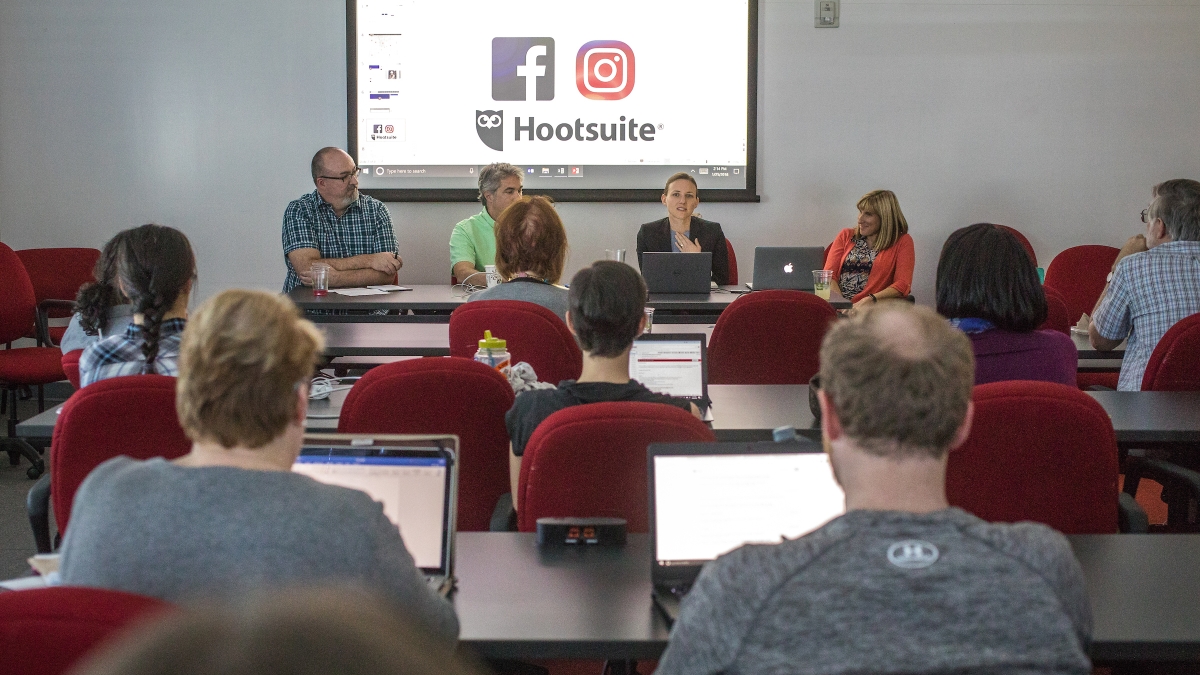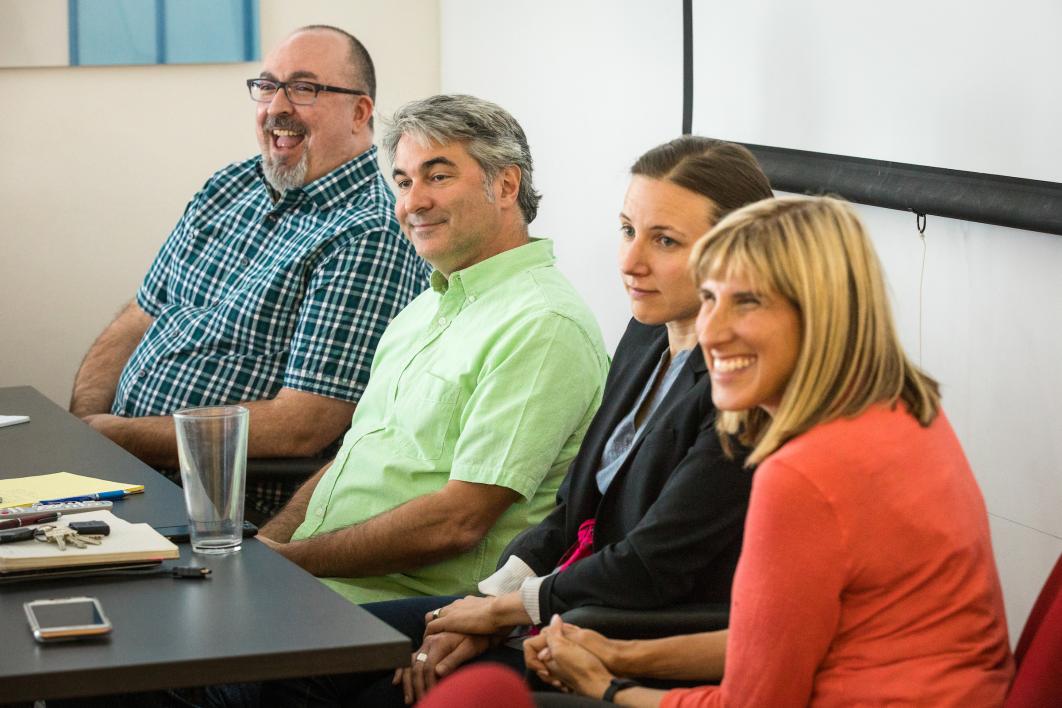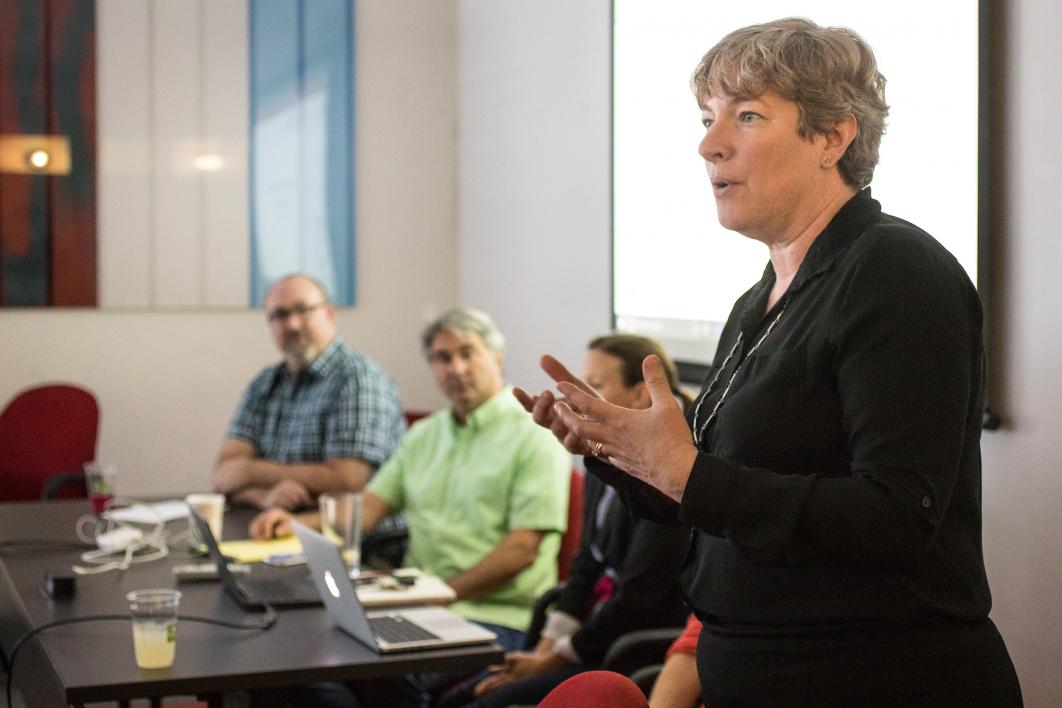Social media can be extremely useful when you have something to shout from the rooftops — like, say, groundbreaking research — and indeed, many scholars regularly use it so. But along with that ease of information sharing come certain liabilities, especially when you represent a public institution.
Former Drexel University Professor George Ciccariello-Maher learned that the hard way after a series of controversial tweets following the 2017 Las Vegas shooting eventually cost him his job.
Even if you think your account is private, it's best to err on the side of caution.
“I just assume that everything I post online can be connected to me personally,” said David King, an assistant professor of urban planning.
King shared that sage advice with a handful of other Arizona State University social sciences faculty, staff and students who gathered last week on the Tempe campus to discuss the do's and don’ts, pros and cons, and ins and outs of social media, when it comes to improving the impact of their research.
I’m never going to post something I wouldn’t want Michael Crow or my mom knowing about.
— Professor David King
Elizabeth Wentz, dean of social sciences in the College of Liberal Arts and Sciences, was on hand to introduce the panel, which included King; Tracy Spinrad, human development professor; Trisalyn Nelson, Foundation Professor and director of the School of Geographical Sciences and Urban Planning; and Cameron Thies, professor and director of the School of Politics and Global Studies.
Wentz told the room that over the past couple of years, she’d noticed how the impact of one’s research had become an increasingly important criterion when considering applicants for professorships.
“It struck me,” she said, “how is social media changing the needle on how impactful our research is? Do I recommend people use it, or is it not worth it?”
For Spinrad, it’s worth it. When she ran into a wall trying to recruit students for a recent study, she found success posting her research project on Facebook. Project K.I.D. (Kindness in Development) seeks to examine children’s prosocial behavior toward others.
From left to right: ASU professors Cameron Thies, David King, Trisalyn Nelson and Tracy Spinrad discuss the ins and outs of social media. Photo by Charlie Leight/ASU Now
All she had to do was create a group, invite a few people and watch it grow as they shared with their friends and family, and on and on.
“I did nothing,” Spinrad said. “And it just kind of spread like wildfire.”
The study is now complete and she uses the Facebook group page to keep participants posted about developments and updates in the research. What’s more, Raising Arizona Kids saw the page and contacted her for an August 2017 story about the study.
Publishers are very interested in social media, said Thies, who serves as editor-in-chief of the scholarly journal Foreign Policy Analysis, published by Oxford University Press.
“Oxford in particular has developed metric scores,” he said, to analyze how well a certain article or study is being received on social media. The metrics look at things like the number of times an article was tweeted or re-tweeted, the number of times it was shared, where it was shared, etc.
The article is then scored based on its performance, which can provide insight on how, when and where to advertise something similar in the future.
The publishing industry is “with [social media] for the long run, for good or bad,” Thies said.
Elizabeth Wentz, dean of social sciences in the College of Liberal Arts and Sciences. Photo by Charlie Leight/ASU Now
He and others on the panel touted the benefits of such professionally-geared sites as Google Scholar, ResearchGate and LinkedIn to share their work and spark collaborations, while others admitted they primarily use sites with a more general audience, like Twitter.
King says to use them all. He’s done his due diligence in securing an account on as many social media sites as he is aware of.
“Claim those sites,” he said. “Whether or not you use [that account], this is your online presence. You never know when you’re going to need it.”
And something that should be obvious about social media: it has to be social.
“If you just post stuff, you’re not going to get anything out of it,” King said. “You have to interact to some degree.”
There again, though, another pitfall emerges. Learning to manage how much time you spend on social media is crucial as an academic with a packed schedule.
“Overall, it can be fun but there are also times when you don’t want it to interfere with your writing or other priorities,” Nelson said.
One recommendation the panel gave was to only check in on social media between tasks, so it doesn’t become all-consuming. Another point they all agreed on, and one that King considers a cardinal rule, is to just be nice.
“Don’t tweet about the president,” King said. “Sometimes you just have to let stuff go. There will always be someone who disagrees with you, there will always be a daily outrage. … But I’m never going to post something I wouldn’t want Michael Crow or my mom knowing about.”
Top photo: (From left to right) Cameron Thies, professor and director of the School of Politics and Global Studies; David King, assistant professor of urban planning; Trisalyn Nelson, Foundation Professor and director of the School of Geographical Sciences and Urban Planning; and Tracy Spinrad, professor of human development, discuss the ins and outs of social media Thursday, Jan. 25 at ASU. Photo by Charlie Leight/ASU Now.
More Arts, humanities and education
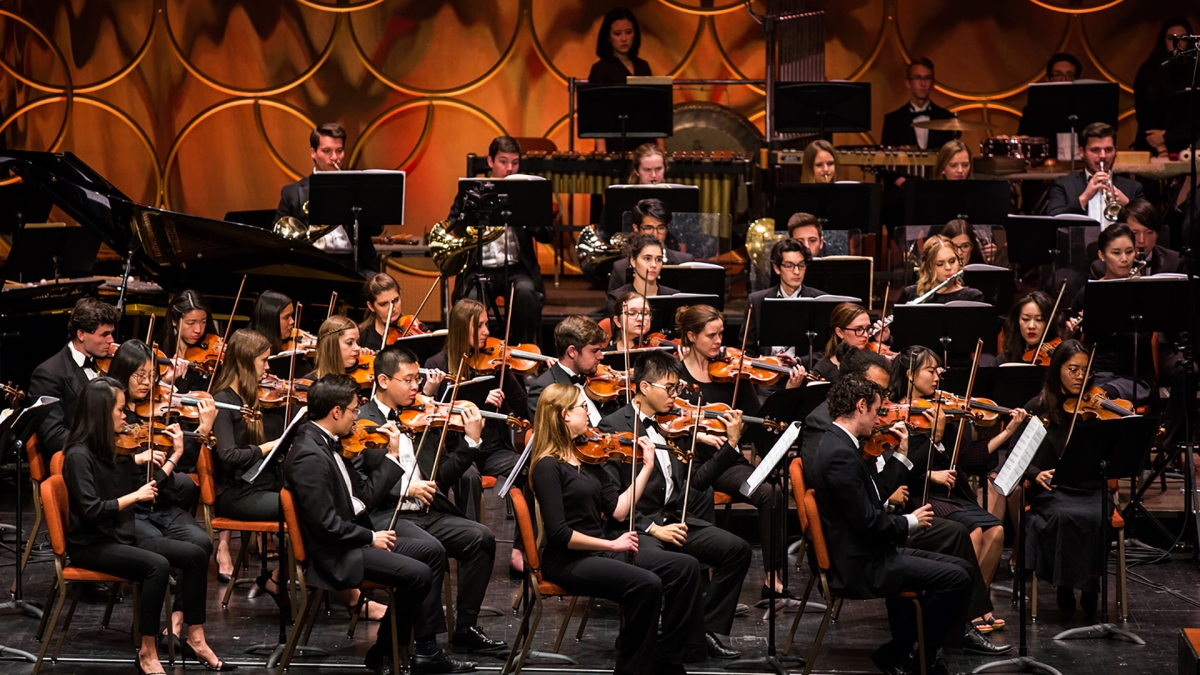
ASU Symphony Orchestra welcomes visionary conductor Jonathan Taylor Rush
Guest conductor Jonathan Taylor Rush will join Arizona State University’s Jason Caslor, director of bands, to lead the ASU Symphony Orchestra in their final concert of the season, “Trailblazers,” on…
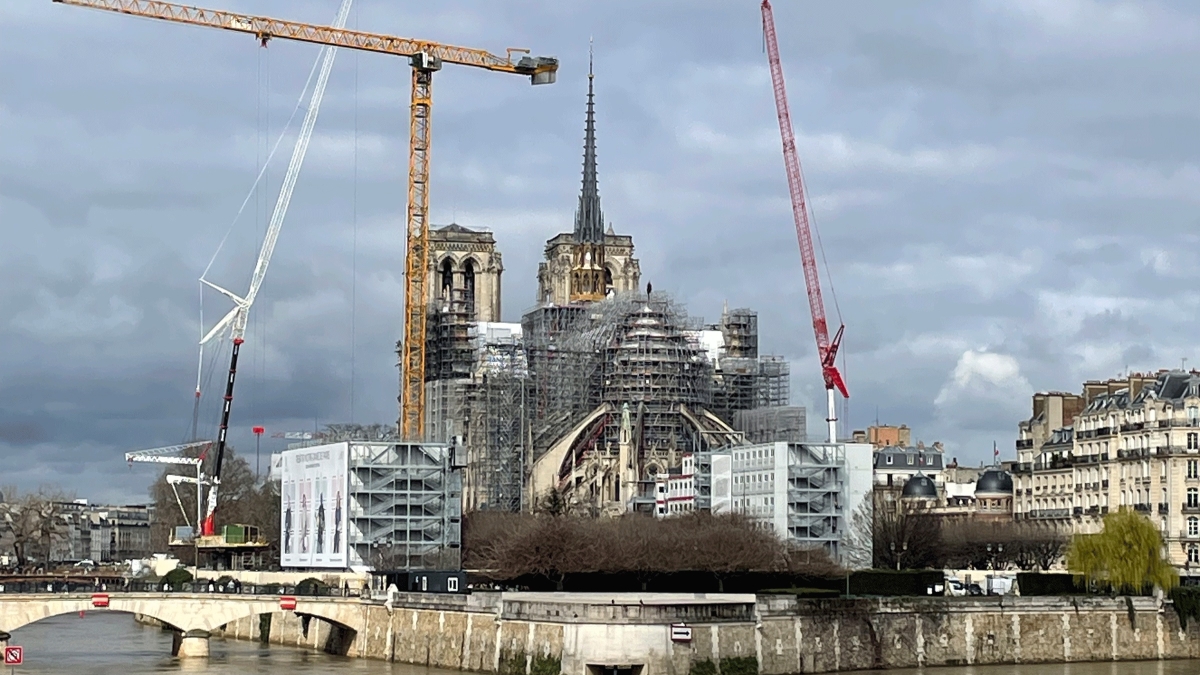
Chemistry classes are key to art student's success
Amanda Barnette has a passion for art preservation. That means that, for the past four years, the Arizona State University student’s schedule was filled with classes that fit her artistic bent:…
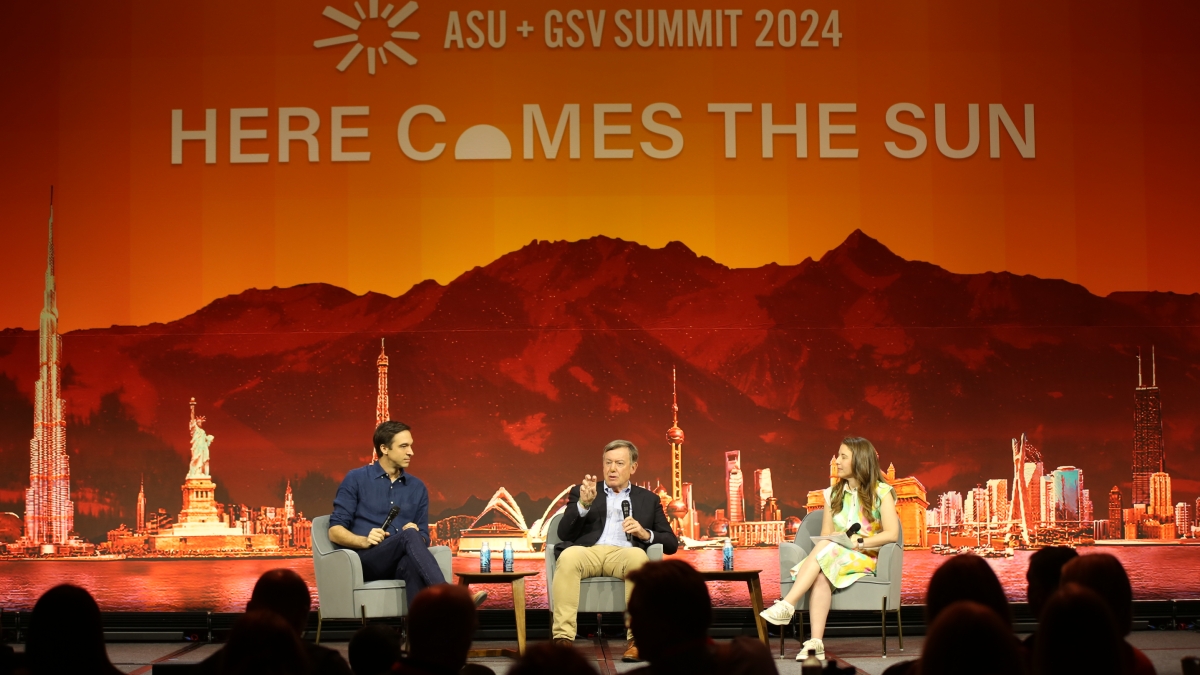
ASU+GSV Summit tackles big questions about AI, technology, education
Editor's note: We'll be updating this story daily throughout the summit. The annual ASU+GSV Summit kicked off in San Diego on Sunday, drawing thousands of leaders for a four-day event that focuses…
